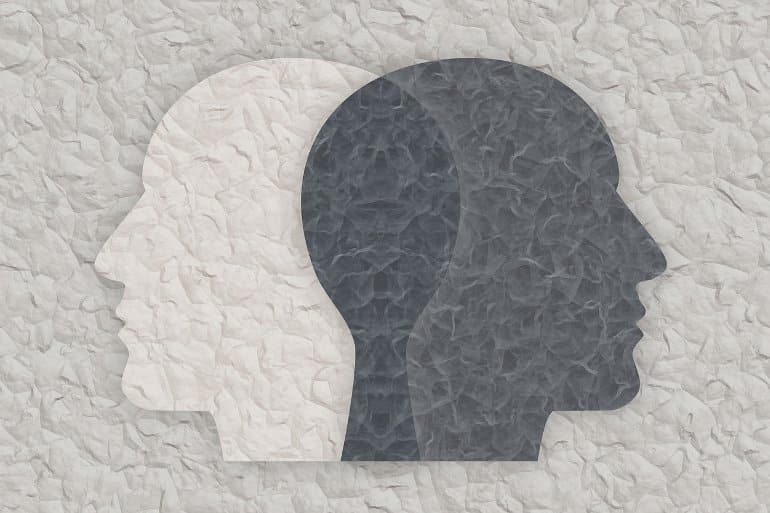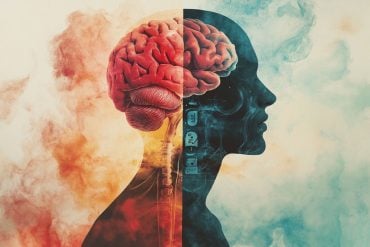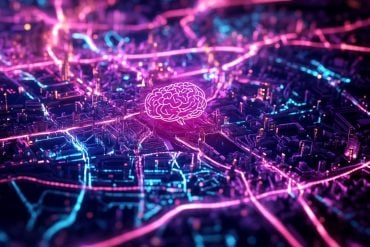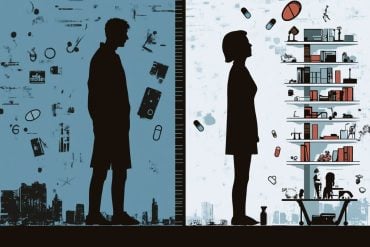Summary: The brain’s reward system plays a key role in helping behaviors and empathy.
Source: Tel Aviv University
Are mammals at all able to demonstrate empathy for one another, engage in pro-social behavior, and help others in distress? New research from the Tel Aviv University examined the issue based on an animal model (rats) and found that just as with humans, rats are also split into various groups with different indicators, to the point that they only come to the aid of members of their group but do not help rats from other groups.
The study’s findings demonstrate that rats engage the brain’s reward system when trying to assist a trapped friend. On the other hand, when the trapped rat is from another, unfamiliar breed, the rats do not help it and the brain’s reward system does not activate. Thus, a sense of belonging is the dominant factor that affects social solidarity and not empathy for the suffering and distress of others.
The study was led by Dr. Inbal Ben Ami Bartal of the School of Psychological Sciences and Sagol School of Neuroscience at the Tel Aviv University, in collaboration with Prof. Daniela Kaufer of the University of California and Berkeley as well as additional researchers from Stanford University and the University of Toronto.
The study was published in eLife.
According to Dr. Ben Ami Bartal, the new study relied on a previous discovery that was published in the journal, Science, where it was found that rats show empathy for their peers and even rescue them from trouble and reaching out to help is as rewarding to them as eating chocolate. Later, additional research found that although rats love to help their peers, they only help members of their own group and not rats from other groups.
As a result, in the current study, the research team decided to examine what change in the brain causes this behavioral difference that leads the rats to only help members of the same group.

Dr. Ben Ami Bartal explains that during the course of the study, researchers used phosphoric markings to mark those neurons in the rats’ brains that were active when the rats were in the presence of the trapped rats. Similarly, the researchers recorded their cerebral activity by means of a calcium signal that is released when neurons are active.
Their findings are fascinating: Upon seeing the trapped rat, a system in the brain, similar to that seen in humans when they report feeling empathy, was activated.
Nevertheless, only when the rats discerned that it was a rat of their own breed did the researchers observe “helpful behavior” and action by the brain’s “reward system,” meaning – activation of a neural network that inspires motivation to perform acts that contribute to survival such as eating calorie rich foods.
Dr. Ben Ami Bartal said, “This research shows that the reward system has an important function in helping behavior and if we want to increase the likelihood of pro-social behavior, we must reinforce a sense of belonging more than a sense of empathy. An additional study that we are currently conducting attempts to examine what happens in the brains of rats from different groups over the course of two weeks during which they live together and become friends, and how can we use artificial brain stimulation to cause the rats to show empathy for the plight of rats from another breed.”
About this empathy and neuroscience research news
Author: Noga Shahar
Source: Tel Aviv University
Contact: Noga Shahar – Tel Aviv University
Image: The image is in the public domain
Original Research: Open access.
“Neural correlates of ingroup bias for prosociality in rats” by Inbal Ben-Ami Bartal, Jocelyn M Breton, Huanjie Sheng, Kimberly LP Long, Stella Chen, Aline Halliday, Justin W Kenney, Anne L Wheeler, Paul Frankland, Carrie Shilyansky, Karl Deisseroth, Dacher Keltner, Daniela Kaufer. eLife
Abstract
Neural correlates of ingroup bias for prosociality in rats
Prosocial behavior, in particular helping others in need, occurs preferentially in response to distress of one’s own group members. In order to explore the neural mechanisms promoting mammalian helping behavior, a discovery-based approach was used here to identify brain-wide activity correlated with helping behavior in rats.
Demonstrating social selectivity, rats helped others of their strain (‘ingroup’), but not rats of an unfamiliar strain (‘outgroup’), by releasing them from a restrainer. Analysis of brain-wide neural activity via quantification of the early-immediate gene c-Fos identified a shared network, including frontal and insular cortices, that was active in the helping test irrespective of group membership.
In contrast, the striatum was selectively active for ingroup members, and activity in the nucleus accumbens, a central network hub, correlated with helping. In vivo calcium imaging showed accumbens activity when rats approached a trapped ingroup member, and retrograde tracing identified a subpopulation of accumbens-projecting cells that was correlated with helping.
These findings demonstrate that motivation and reward networks are associated with helping an ingroup member and provide the first description of neural correlates of ingroup bias in rodents.







